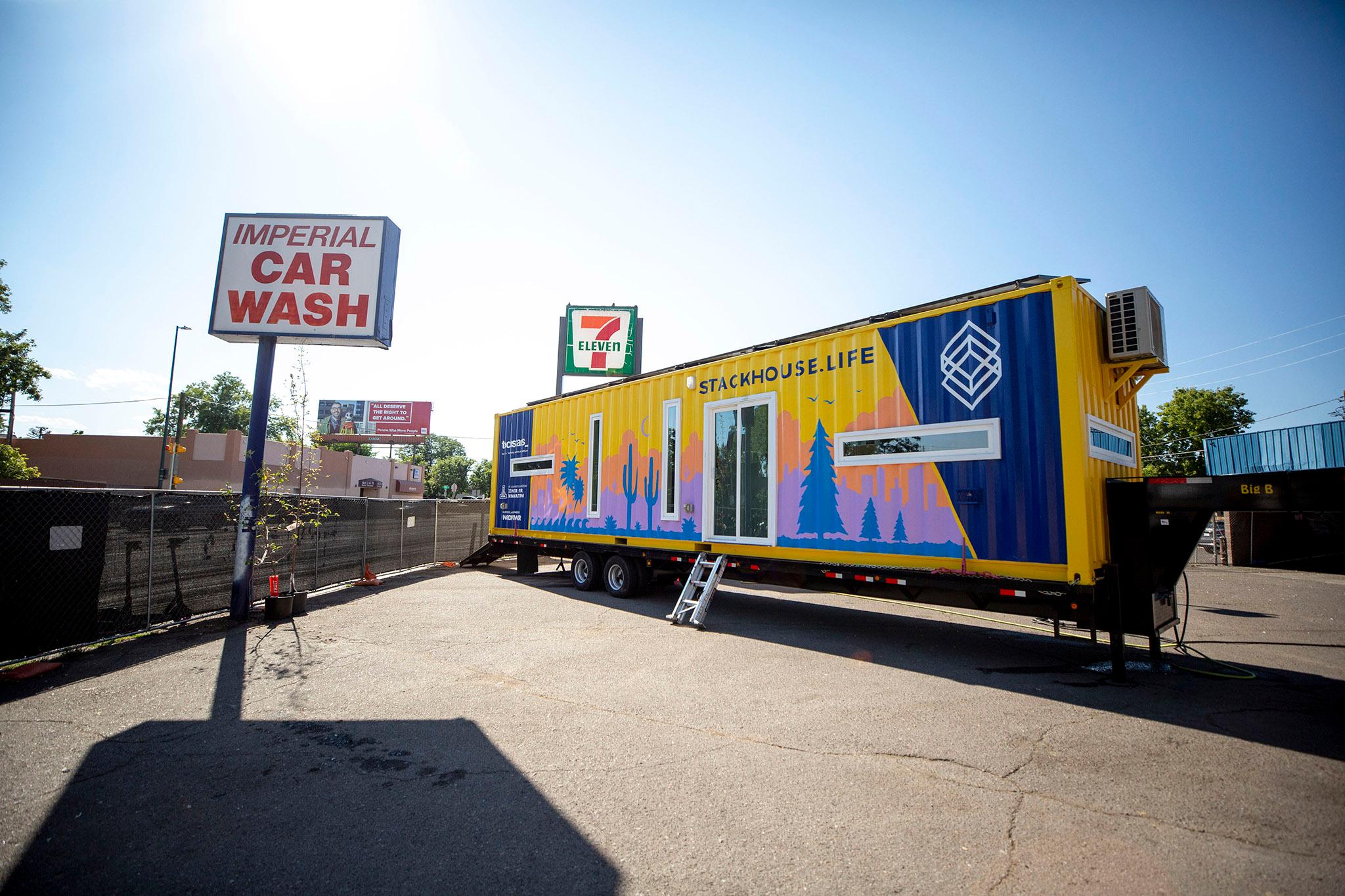On the site of an old West Colfax car wash, behind a covered fence, you'll find a shipping container -- not a worn and well-traveled container, but a tropical-colored one. Soon there will be more of them -- and you could live in one.
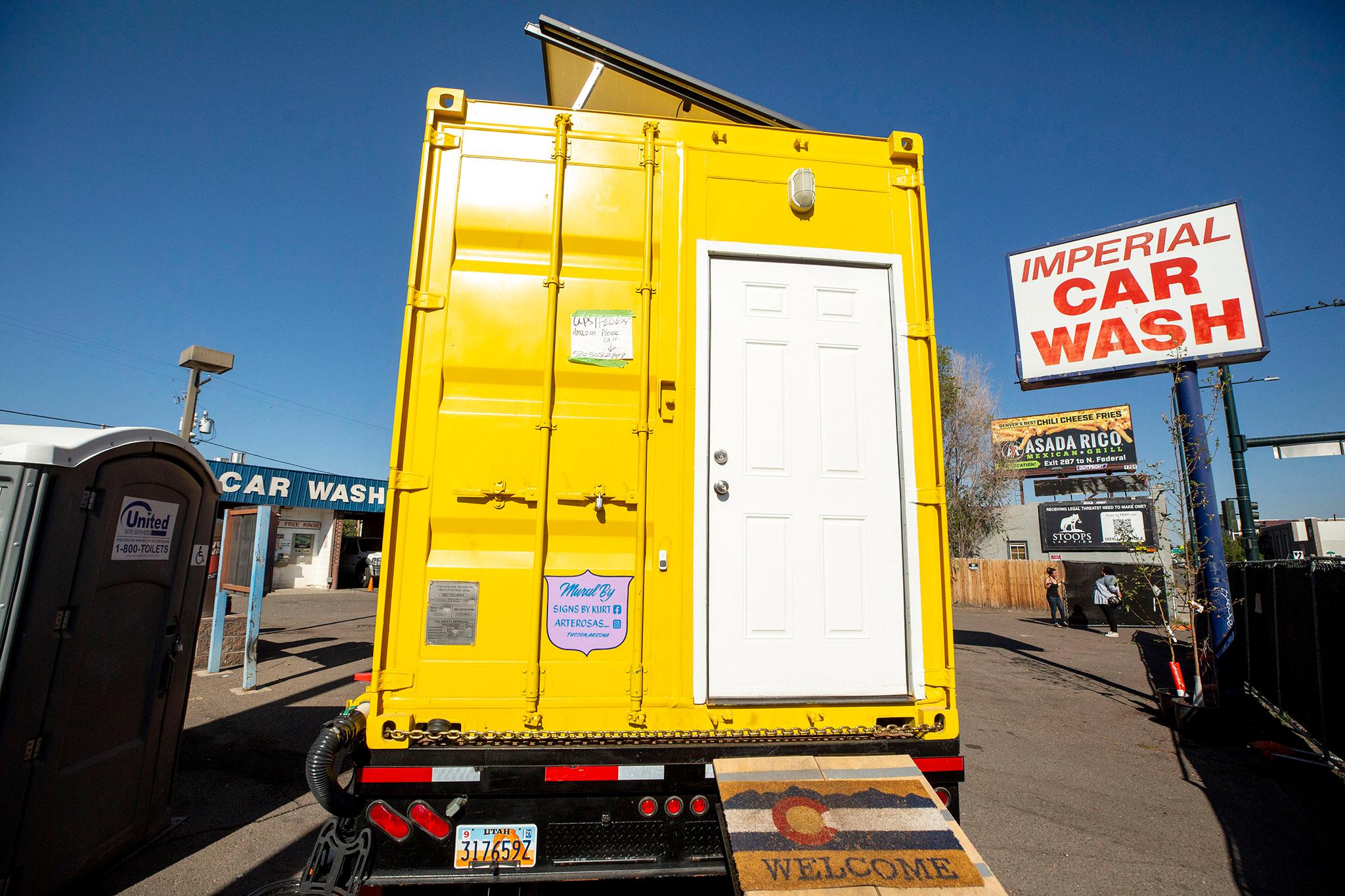
Stackhouse is a startup housing and real estate project set to open its doors in August 2022, but instead of typical apartments, the units are stackable and moveable shipping containers.
"We are the first company to build vertical infrastructure for moveable containers," said co-founder and CEO Janelle Briggs. "Our goal is to add a new column of ownership to the housing market... and build our vertical communities around the country so folks can buy one container home and then send it where they need or want it to be."
Denver is the first stop on Stackhouse's trek to build at least 25 other complexes across the U.S. over the next five years.
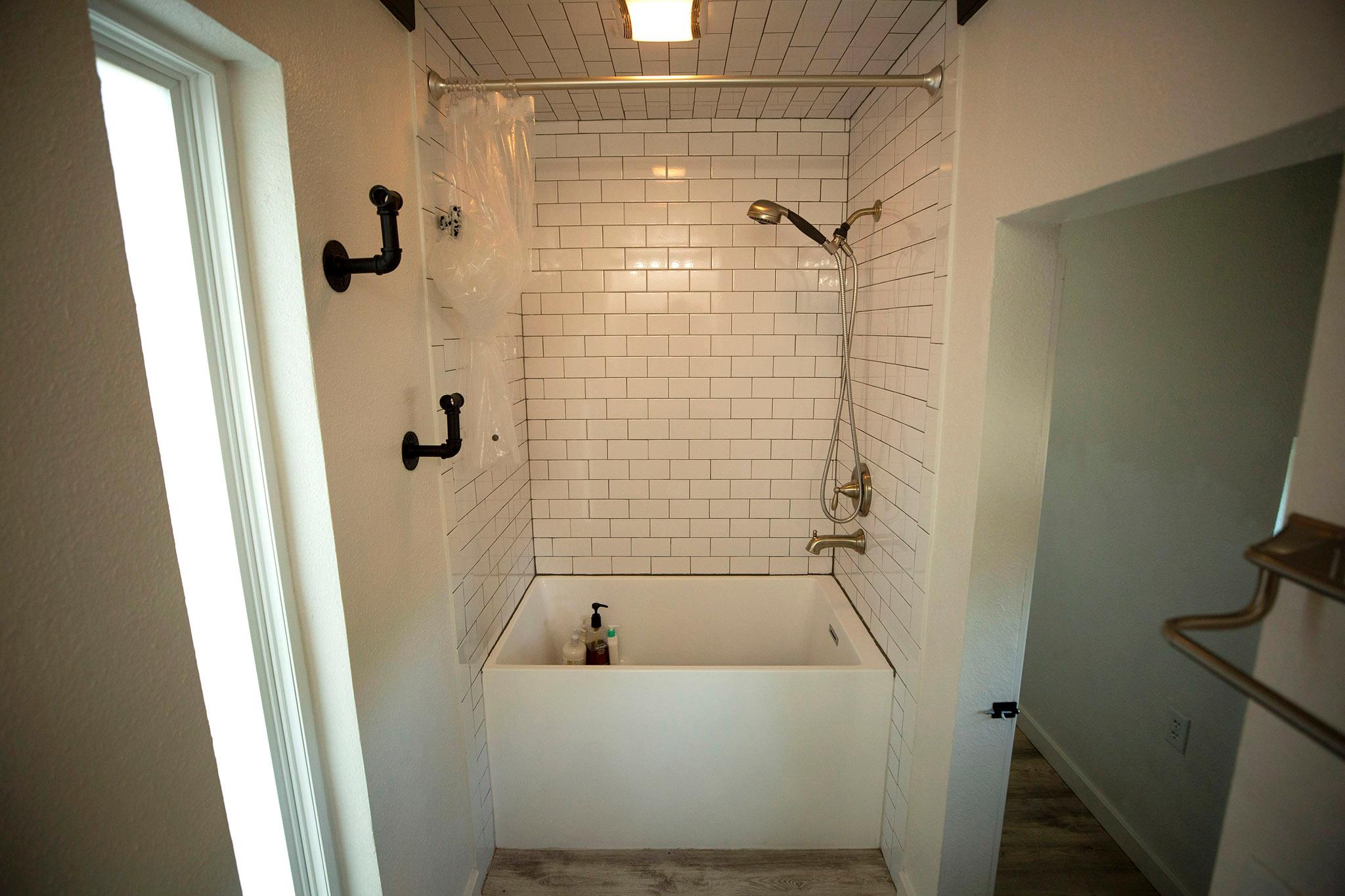
So, what's a Stackhouse?
The containers are 320-square-foot units that fit inside a 40-foot shipping container. Stackhouse is offering three floor plans: a studio, a one-bedroom and a one-bedroom flex that includes a smaller space that can be used as an office or a nursery, according to Briggs.
The complex on Colfax will be eight stories high with 62 total slots for container homes. Briggs said 40 of the slots are for sale, while the other 22 will be used for those who want to test the space out.
Each container has a full kitchen, solar panels and a bathroom with a Japanese-style soaking tub.
"We're building really great homes for folks who need to live downtown," Briggs said. "Sure, this house is 320 square feet and that's too small, but I have everything I want in this house. I play fetch with my dog in the house. This location is amazing."

The container price ranges from $110,000 to $130,000. Then, there's the slot price which ranges from $200,000 for a ground unit to $350,000 for an upper floor. Briggs said the slot prices are similar to a co-op cost. Owners will purchase a share of the co-op, thus owning their spot in the complex and receiving a percentage of the co-op equity.
Stackhouse doesn't allow for Airbnb or other short-term rentals. Briggs said all the co-op spaces must be owner-occupied.
In total, a container plus the slot will cost you between $310,000 to $480,000.
In comparison, the median closing price for an attached residential home, i.e. condominiums, in Denver was $375,000 in August, according to the Denver Metro Association of Realtors. The average closing price was $437,000.
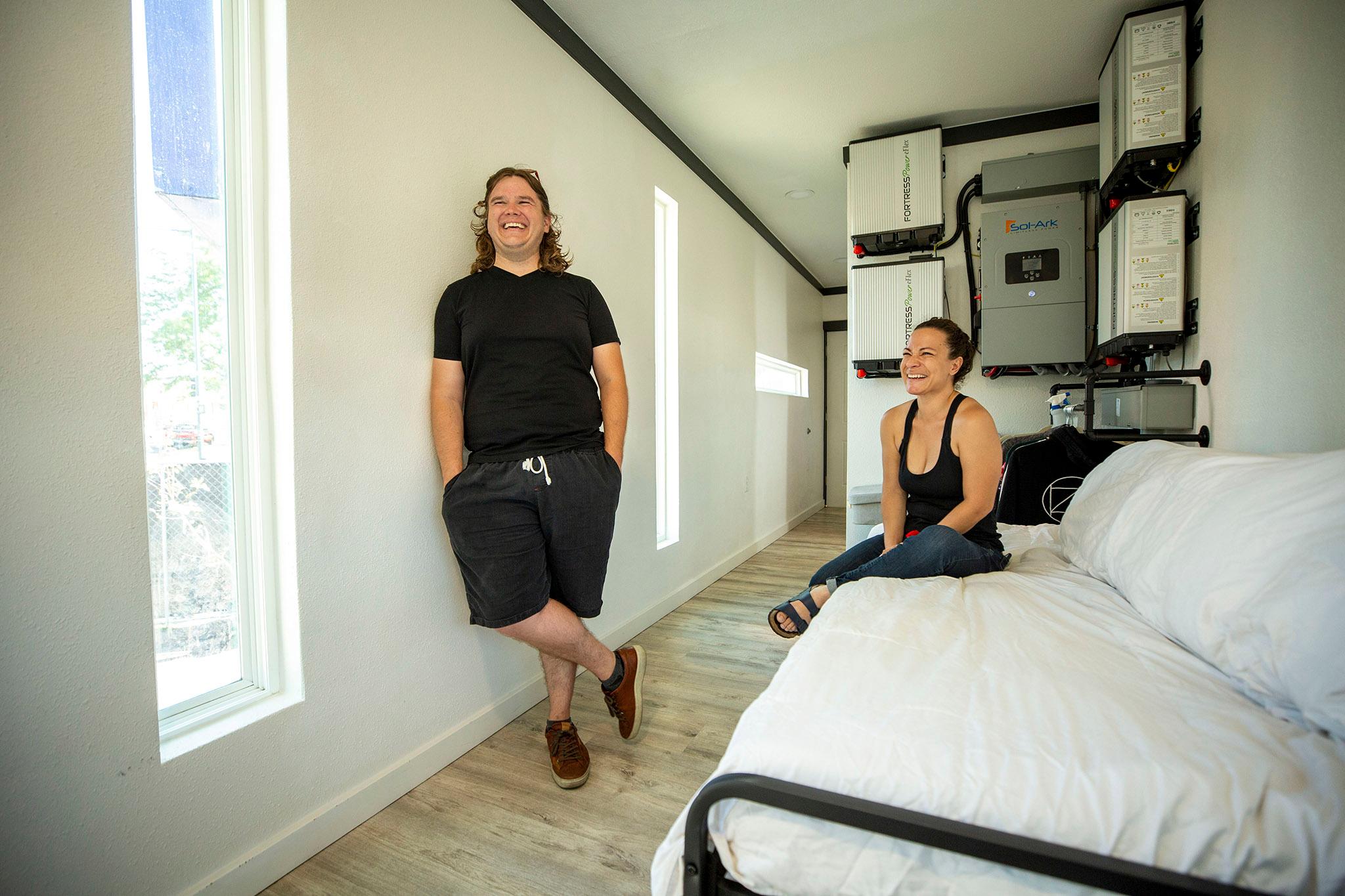
The idea of Stackhouse began in 2017 and stemmed from Briggs' partner, co-founder and COO Ryan Egan.
Egan, who has worked in both commercial and residential real estate, said he was motivated to create an "urban housing alternative" based on his own experience in San Francisco, attempting to build traditional condominiums.
"It was frustrating," Egan said. "So, I tried to figure out a way to build housing that followed all of the rules, so I can build fast and Stackhouse was that solution."
Briggs said Stackhouse creates housing density at a fast pace, adding that container manufacturer RoxBox can build a home in a day.
Initially the containers were marketed as affordable, costing about $45,000 for the container, but Egan said the affordable numbers are no longer feasible.
"[Affordability] was the original intent and it remains our long-term vision," Egan said. "But we are running up against real world problems that make that very difficult. Anytime you try to do something new the banks ask you what your comps are and Stackhouse has never been done before, so our financing is exceedingly expensive."
Egan adds that while container homes already exist, the model of stacking them to create housing density does not, so with the complex being "so innovative, Stackhouse does not qualify for a single government assistance program."
Stackhouse's lack of government assistance and the current zoning for the lot also means they aren't required to provide affordable units. Stackhouse didn't need to ask for a zoning change, thus the sale didn't need to go through city council or through local registered neighborhood associations.
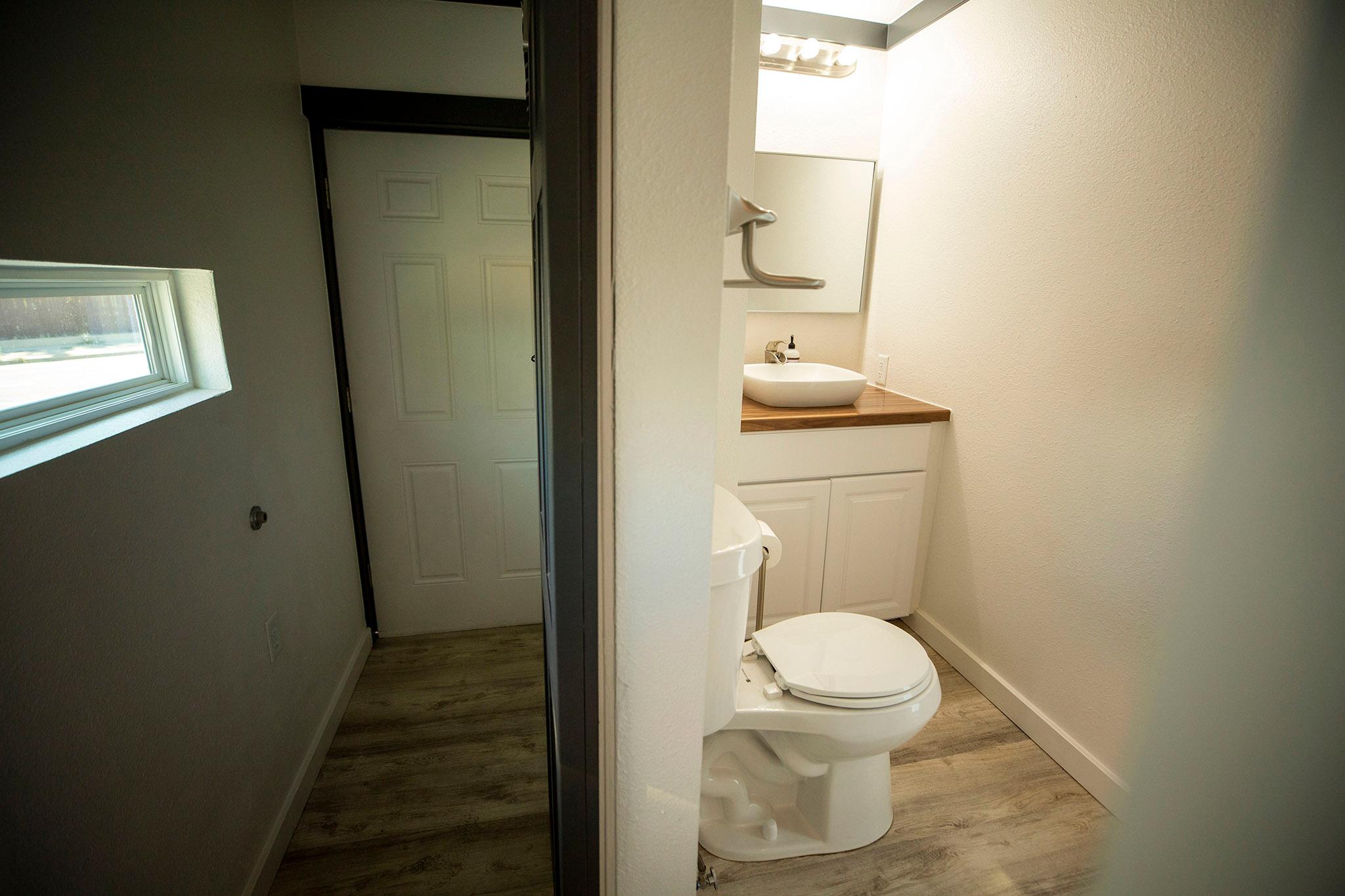
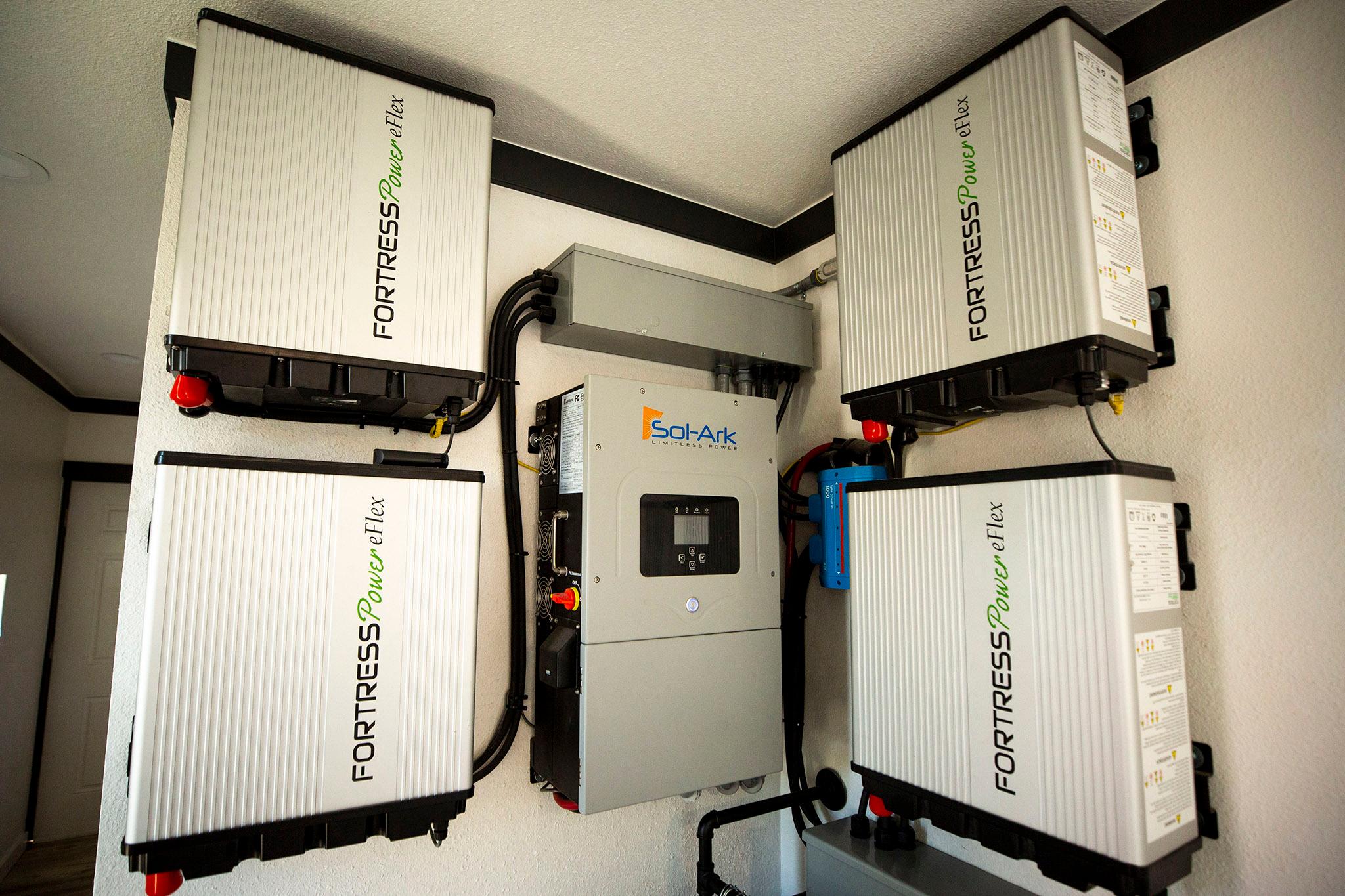
Stackhouse's affordability also came up during a recent tour of District 3 with Councilwoman Jamie Torres. Torres mentioned the Stackhouse project and said while the idea is innovative, she worries about the West Colfax neighborhood already experiencing gentrification and displacement.
Egan said he hopes that in the future the prices can decrease as demand increases.
"Our hope is that we're able to follow the Tesla model as in doing a slightly more expensive version first," Egan said. "We all took very basic economics, the more of something there is the less valuable it becomes... people are skeptical... and that's part of why innovation in housing is so difficult."
The price isn't scaring would-be buyers. Briggs said they've received over 2,000 applications for the units. She also added that unit tours are available. The application deadline is October 15 and afterward, Stackhouse will randomly select buyers, requiring a $2,500 down payment.
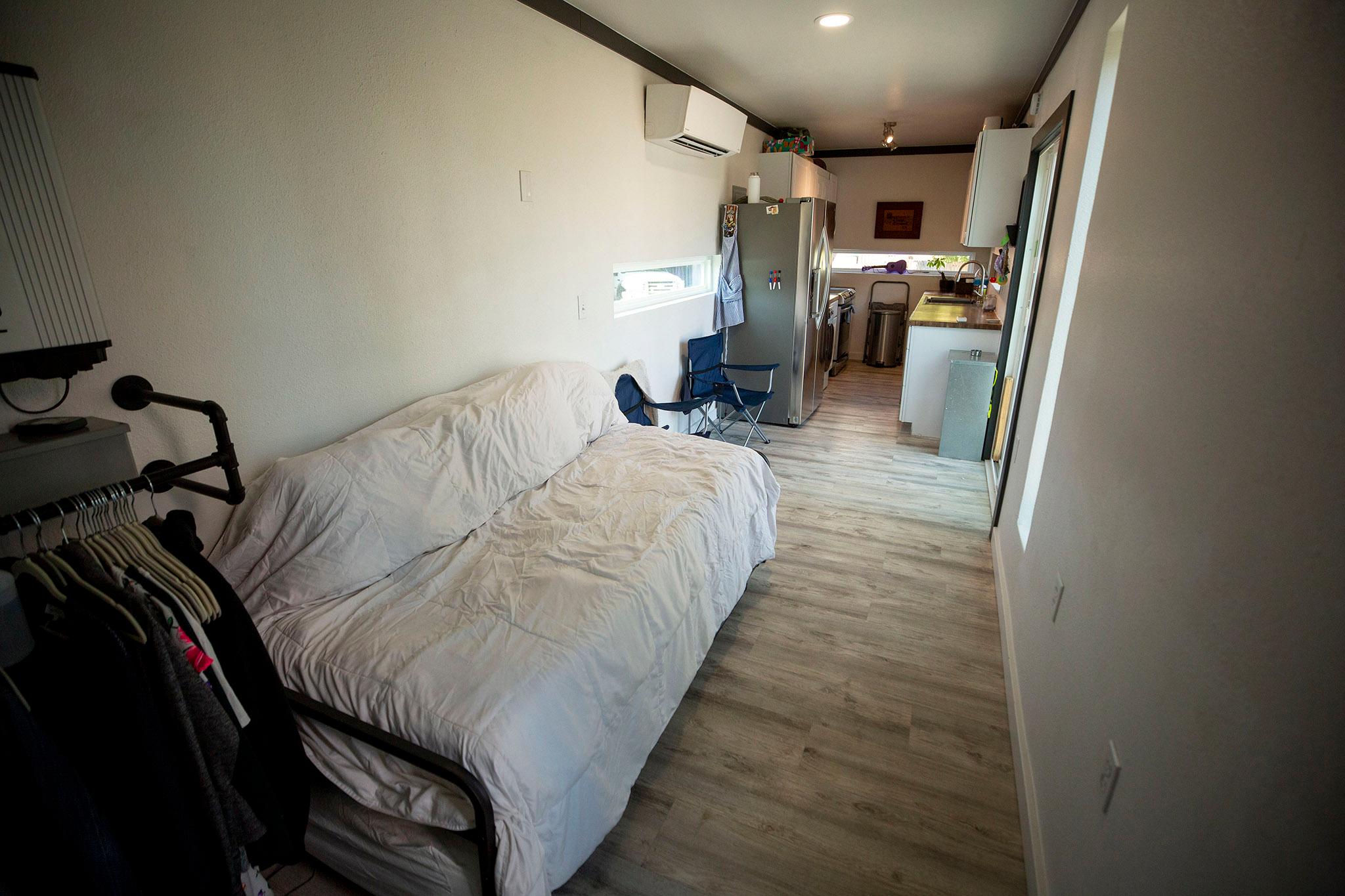
"Our long-term goal is to make sure that everyone who needs housing has it," Briggs said. "By building more faster, we can correct the market. There's no reason to have a housing shortage. Stackhouse follows the code and we can build dense and quick and that's one way we can solve the housing crisis."

